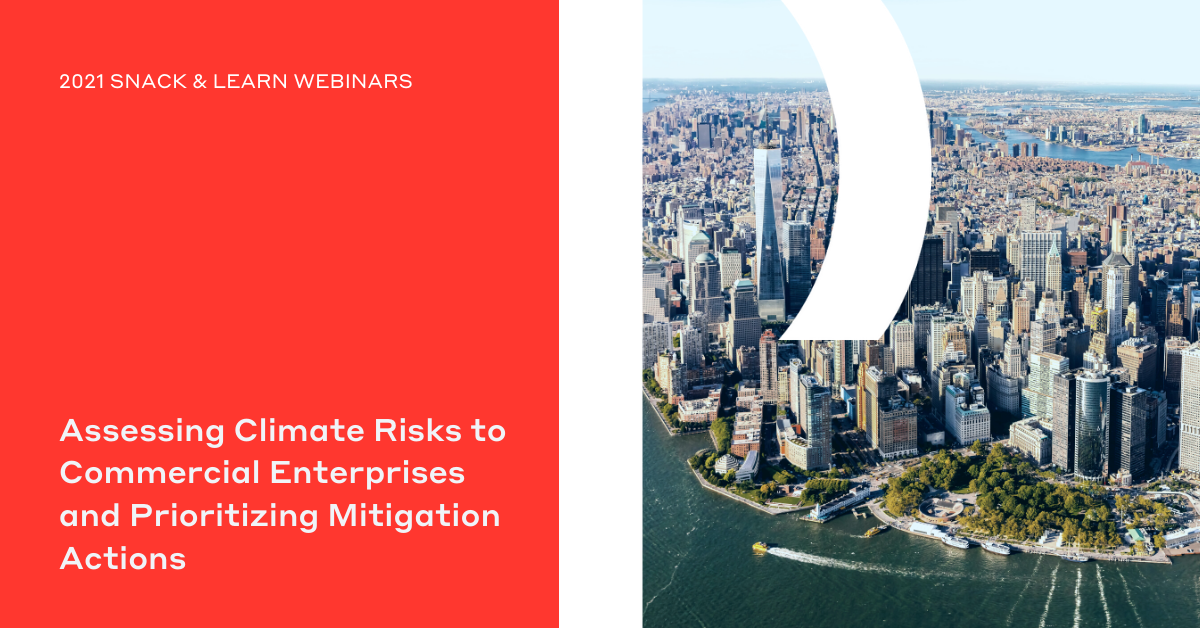Webinar: Assessing Climate Risks to Commercial Enterprises and Prioritizing Mitigation Actions
Snack & Learn Webinar Series 2021 - The webinar will offer insights into assessing options and improving the adaptive capacity of commercial enterprises at least cost.
Published 07-15-21
Submitted by WSP

Many commercial enterprises have mature risk management practices. These risk management practices often will consider the impact of severe weather events on operations and their customer base. However, they typically use historical data for measuring these risks and rarely take into account forecast changes to the likelihood of these events due to climate change, often underestimating the risks of the extreme events, and mistakenly describing these as “Black Swans.” Further, chronic stressors due to climate change such as changes to average temperature and diurnal temperature variation are often ignored, as are non-physical threats such as changes in legal liability, the regulatory environment and expectations of stakeholders and shifting markets.
Commercial enterprises often take solace in the use of insurance to shift risks to third parties, yet the current path of emissions and climate change suggest a future market with insufficient capital to insure for all likely risks. At the same time, we must recognize that the resources of individual companies are finite and choices on which risks to address, and in what manner must be made. A common error is to default to relatively expensive but tangible capital investments such as sea walls and similar barriers. However, very often process improvements, diversification/redundancy in the supply chain, and improved partnering with government authorities and local communities may instead be much more cost effective than capital spending. In this webinar, WSP will offer insights into assessing these options and improving the adaptive capacity of commercial enterprises at least cost.
Presenters:
Michael Mondshine - Vice President, Sustainability and Energy, WSP USA
Emily Wasley - Practice Leader, WSP USA
Sue Kemball-Cook - Senior Project Director - Sustainability, Energy & Climate, WSP USA

WSP
WSP
WSP is among the world's largest environmental, engineering, advisory and sustainability consulting firms, with more than 55,000 professionals worldwide. We design lasting solutions in the buildings, transportation, energy, water and environment markets, and develop equitable, ESG-centered strategies that help organizations and communities adapt to changing conditions and become more resilient. Reckon with the past. Innovate for the future. Learn more at wsp.com.
More from WSP

